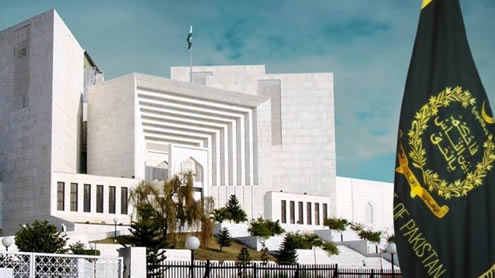In a disturbing escalation of threats against the judiciary in Pakistan, nine additional judges from the Supreme Court and Lahore High Court have received letters allegedly containing toxic substances, just a day after similar incidents were reported at the Islamabad High Court. This alarming series of events has led the Counter-Terrorism Department to initiate two terrorism cases in Islamabad and Lahore, marking a significant concern for the safety of judicial officials.
The letters, which included a suspicious powder sent for forensic analysis, were addressed to notable figures in the judiciary, including CJP Qazi Faez Isa and Justice Athar Minallah among others. These communications carried ominous threats and were dispatched by unidentified groups, heightening the sense of peril surrounding the nation’s judges.
In response to these threats, the police have mobilized, with high-ranking officers rushing to the Lahore High Court following reports of similar letters received by at least five of its judges. The seriousness of the situation was underscored by the immediate action taken by police and forensic teams to analyze the substances and trace the origins of these letters.
The Counter-Terrorism Department’s involvement and the registration of cases under stringent sections of the Anti-Terrorism Act and Pakistan Penal Code reflect the gravity with which authorities are treating these intimidations. The forensic examination of the suspicious powder, suspected to be a dangerous bacteria like anthrax, is a critical component of the ongoing investigation, aiming to unravel the intent and individuals behind these menacing acts.
This string of targeted threats against the judiciary has not only put individual judges at risk but has also cast a shadow over the independence and security of the judicial system in Pakistan. As the investigation unfolds, the legal community and law enforcement agencies remain on high alert, determined to protect the judiciary from such unprecedented threats.













